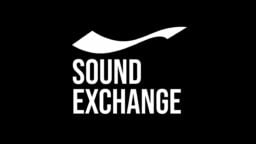It’s not easy breaking artists right now – especially when you’re committed to building careers.
Just two debut artist albums went Gold in the US in the first six months of this year: Nine Track Mind by Charlie Puth and Islah by Kevin Gates.
Both of them happen to be on the same label: Mike Caren’s Artist Partners Group – an ‘independent major’ imprint of Atlantic Records run out of Hollywood, Los Angeles.
Islah has since gone Platinum, in a year when others are struggling to gain traction for emerging artists in the US and beyond.
So what’s Caren’s secret?
Atlantic Chairman & CEO Craig Kallman and Chairman & COO Julie Greenwald say: “Mike Caren’s A&R instincts are exceptional, and he has signed an amazing roster of artists across a range of genres.”
Caren (pictured) partly puts APG‘s success down to its determination to keep its roster manageable, and therefore dedicate more creative resources to each artist than other labels can muster..
“We [at APG] believe that, if you are a star, you still have to essentially work harder than all your competition,” he says in the reborn MBW Podcast, available to listen to above. “We don’t sign [acts] who don’t have that.”
“The A&R timeline of signing and [breaking] an artist in 12-18 months is unrealistic.”
Mike Caren
He adds: “Very few people have really studied the business [enough] to understand that the A&R timeline people have in their head of signing and being successful in 12-18 months is unrealistic.
“Possibly the reason why a lot of artists are successful on their second record deals is that the first team wasn’t patient enough.
“The real lifetime [to break an artist after signing them] is two years-plus. Advances are going to burn out before then – you need a business model that can make it to that point.”
Mike Caren started his career in A&R 21 years ago, aged 17, at Atlantic subsidiary Big Beat Records. Since then, he has signed or co-signed over 20 artists that have achieved gold or platinum status.
From 2009 to 2012, he served as Co-President alongside John Janick of the relaunched Elektra Records (Bruno Mars, Ed Sheeran, Cee Lo Green).
He established Artist Partners Group in 2013 as a sister company to Artist Publishing Group, which is administered by Warner/Chappell.
In addition to APG, he has a global remit as Warner Music Group‘s Creative Officer.
“artists are not binary objects – they are human beings who are constantly changing.”
Mike Caren
Outside of A&R, Caren is also an active songwriter having written and/or produced for Beyoncé, Kanye West, Bruno Mars, Cobra Starship, Flo Rida, Trick Daddy, Asher Roth, and others.
“Being a producer and writer, I’ve realised that there’s no single rule to making a great record,” he says on the podcast.
“The records I’ve been a part of, some of them started from scratch with me in a bedroom… and with others I’ve come in on [late] with ideas of how to make a significant difference.”
He adds: “There really are no rules. I hate the word ‘rules’. It’s the antithesis of A&R.”
Caren encourages the industry to remember that artists, especially young artists, grow up quickly – and that you might not be dealing with the same individual at 19-years-old than you were two years previous.
“We have a tendency as organised human beings to make a list and scratch them off: ‘I’ve seen that person, they are X, Y or Z’,” he says.
“We’re not talking about binary objects, we’re talking about people who are constantly changing.”
Other topics discussed on the MBW Podcast include Caren’s working relationship with Warner/Atlantic executives such as Craig Kallman and the legendary Ahmet Ertegun, as well as Jac Holzman – the founder of Elektra and the man who discovered The Doors.
We also ask Caren about dropping artists – and learning from experiences with talent when things don’t work out as planned.
“The part of the business that gives me the most pleasure is breaking new artists and new writers,” he says.
“More than half of the successful artists I’ve signed have been dropped by other labels.
“Some of the most problematic parts of the music industry are those who believe that other people’s failures are their success.”
Mike Caren
“If you are the first signing an artist and it isn’t working… it’s just not Yin and Yang… there’s another chance for success for them; a new, fresh approach to be tackled and the potential for success knowing how many artists didn’t figure it out first time round.”
He adds: “Lyor [Cohen] passed on [the advice] that if you find yourself in a position where you have to drop an artist, you want to root for them and make it as smooth as possible… and legitimately hope they’re successful.
“Some of the most problematic parts of the music industry are those who believe that other people’s failures are their success. That’s just the wrong mentality. We owe it to every artist who trusts us to do our best to make them successful.
“I don’t look at us competing against [other labels] as much as I look at us competing against video games, apps and movies – people’s time and attention.”


